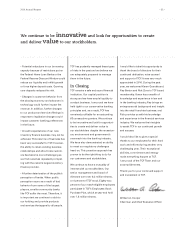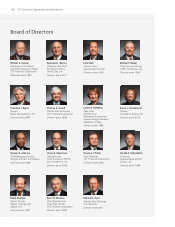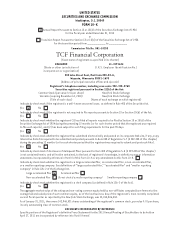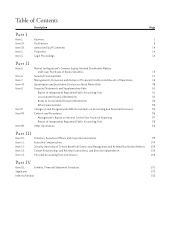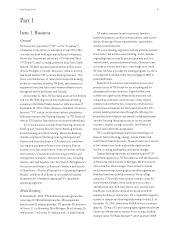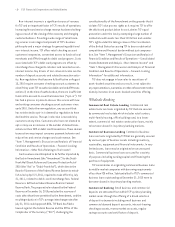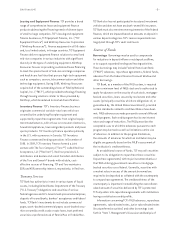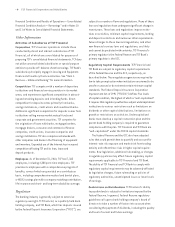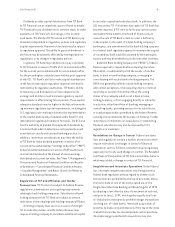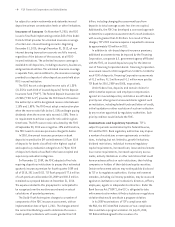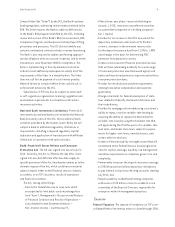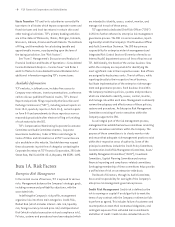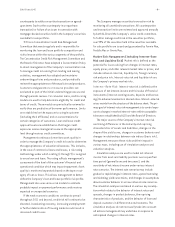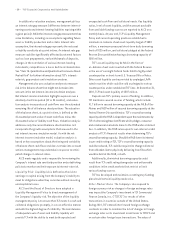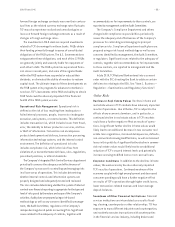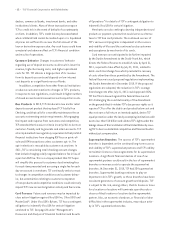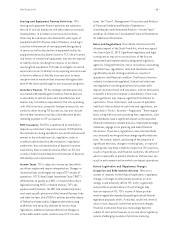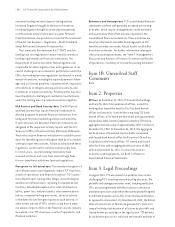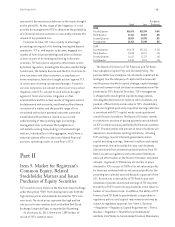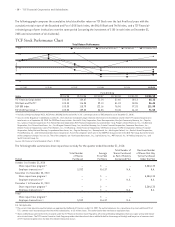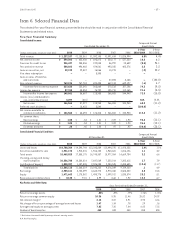TCF Bank 2010 Annual Report Download - page 23
Download and view the complete annual report
Please find page 23 of the 2010 TCF Bank annual report below. You can navigate through the pages in the report by either clicking on the pages listed below, or by using the keyword search tool below to find specific information within the annual report.• 7 •
2010 Form 10-K
Consent Order (the “Order”) by the OCC, the Bank’s primary
banking regulator, addressing certain matters related to the
BSA. The Order requires the Bank to address deficiencies
in the Bank’s BSA program identified by the OCC, including
review and revision of the Bank’s BSA risk assessment, BSA
Compliance Program, and Suspicious Activity Report filing
procedures and processes. The OCC did not identify any
systemic undetected criminal activity or money laundering.
The Bank is also required to address performing appropri-
ate due diligence when an account is opened, and to review
transactions since November 2008 for compliance. The
Bank is implementing or has implemented corrective
action for each deficiency and expects to satisfy all of the
requirements of the Order in a timely fashion. The Order
does not call for the payment of a civil money penalty.
Material failure to comply with the Order could result in
enforcement actions by the OCC.
Subsidiaries of TCF may also be subject to state and/
or self-regulatory organization licensing, regulation and
examination requirements in connection with certain
insurance activities.
National Bank Investment Limitations Permissible
investments by national banks are limited by the National
Bank Act and by rules of the OCC. Non-traditional bank
activities permitted by the Gramm-Leach-Bliley Act will
subject a bank to additional regulatory limitations or
requirements, including a required regulatory capital
deduction and application of transactions with affiliates
limitations in connection with such activities.
Dodd-Frank Wall Street Reform and Consumer
Protection Act The Act was signed into law on July 21,
2010. Generally, the Act is effective the day after it was
signed into law, but different effective dates apply to
specific provisions of the Act. Uncertainty remains as to the
ultimate impact of the Act, which could have a material
adverse impact either on the financial services industry
as a whole, or on TCF’s business, results of operations
and financial condition.
The Act, among other things:
• Directs the Federal Reserve to issue rules which
are expected to limit debit-card interchange fees
(see “Item 7. Management’s Discussion and Analysis
of Financial Condition and Results of Operations –
Consolidated Income Statement Analysis –
Non-Interest Income – Card Revenue”);
• After a three-year phase-in period which begins
January 1, 2013, removes trust preferred securities
as a permitted component of a holding company’s
tier 1 capital;
• Provides for an increase in the FDIC assessment for
depository institutions with assets of $10 billion
or more, increases in the minimum reserve ratio
for the deposit insurance fund from 1.15% to 1.35%
and changes in the basis for determining FDIC
premiums from deposits to assets;
• Creates a new consumer financial protection bureau
that will have rulemaking authority for a wide range
of consumer protection laws that would apply to all
banks and have broad powers to supervise and enforce
consumer protection laws;
• Provides for new disclosure and other requirements
relating to executive compensation and corporate
governance;
• Changes standards for Federal preemption of state
laws related to federally chartered institutions and
their subsidiaries;
• Provides for mortgage reform addressing a customer’s
ability to repay, restricts variable-rate lending by
requiring the ability to repay to be determined for
variable-rate loans by using the maximum rate that
will apply during the first five years of a variable-rate
loan term, and makes more loans subject to require-
ments for higher-cost loans, new disclosures, and
certain other restrictions;
• Creates a financial stability oversight council that will
recommend to the Federal Reserve increasingly strict
rules for capital, leverage, liquidity, risk management
and other requirements as companies grow in size and
complexity;
• Permanently increases the deposit insurance coverage
to $250 thousand and allows depository institutions
to pay interest on business checking accounts starting
July 2011; and
• Requires publicly-traded bank holding companies
with assets of $10 billion or more to establish a risk
committee of the Board of Directors responsible for
enterprise-wide risk management practices.
Taxation
Federal Taxation The statute of limitations on TCF’s con-
solidated federal income tax return is closed through 2006.


